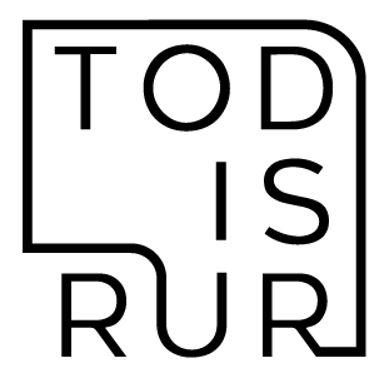 On 12. December, EPF organised a webinar in the context of the TOD-IS-RUR (Transit-Oriented Development for Inclusive and Sustainable Rural-Urban Regions) project. The target audience of the webinar consisted of the Early Stage Researchers (ESRs) employed by the project. The 2-hour event, moderated by Wandi Chivaura from EPF, provided an insightful exploration into user-centric solutions and inclusive transport policies.
On 12. December, EPF organised a webinar in the context of the TOD-IS-RUR (Transit-Oriented Development for Inclusive and Sustainable Rural-Urban Regions) project. The target audience of the webinar consisted of the Early Stage Researchers (ESRs) employed by the project. The 2-hour event, moderated by Wandi Chivaura from EPF, provided an insightful exploration into user-centric solutions and inclusive transport policies.
Katie Bulanowski (Project Manager, EPF), kicked off the discussions with a deep dive into passenger needs and considerations, exploring how to create more user-centric transport services. Katie reiterated that not all people are the same and that a person’s mobility choices can be affected by different, and often overlapping, aspects including age, income, location, skills, and more. Most importantly, she discussed the concept of transport poverty and the factors that can negatively impact a person’s every day mobility and therefore his or her societal inclusion. Some examples include transport availability, accessibility and affordability.
José Manuel Vassallo (Professor in the Department of Transportation Engineering, Universidad Politécnica de Madrid) presented “Key drivers for the success of shared mobility solutions in urban and rural areas”. José highlighted some interesting results from a study within the GEMINI project, where EPF is also a partner. The results were divided into four categories: i) environmental and quality of life; ii) accessibility, social inclusion, safety and security; iii) integration, data sharing and regulation; iv) economic and financial aspects. The presentation focused on business models for new and shared mobility services, and pointed at key societal goals that new mobility services can help to achieve.
On the other hand, Antonie van Loon (Urban Planner, Mobx/Voetgangersbeweging) presented “The pedestrian as a key player in mobility hubs”, whereby he explored the role of pedestrians in multi-modal journeys and highlighted Voetgangersbeweging’s role within the Hoppin project in Belgium. The Hoppin project aims to make all necessary services including schools, hospitals and shopping centres more easily accessible to everyone, ‘also for those who are older, have a mobility limitation or prefer to use their car less’.
Delphine Grandsart, (Senior Researcher, EPF), brought a comprehensive understanding of European transport policies. Her presentation highlighted the need for a holistic approach to inclusive policies, emphasising a system catering to all. In addition to her presentation around various EU-level policies, she also discussed the ‘Mobility as a Right’ (MaaR) concept, a pillar of the UPPER project in which EPF is involved. This concept of MaaR is a strategic vision aiming to ensure inclusive mobility whereby all citizens are taken into consideration, regardless of their physical and mental capabilities or social and economic background.
As we reflect on the success of the webinar, EPF remains committed to advancing the dialogue on user-centric solutions. You can find more information on the TOD-IS-RUR project here. The presentation is available for download here.


 Stay informed!
Stay informed!